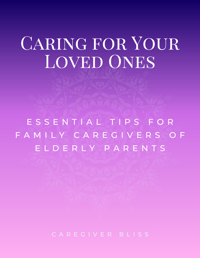How to Secure a DNR Order for Your Elderly Parents: A Step-by-Step Guide

As our loved ones age, it's important to consider their healthcare wishes, especially in situations where they may not be able to express their preferences. One crucial document to discuss with elderly parents is a Do-Not-Resuscitate (DNR) order.
A DNR order is a legal document that specifies a person's desire to forgo cardiopulmonary resuscitation (CPR) in the event their heart stops or they stop breathing. In this article, we'll explore where and how you can obtain a DNR for your elderly parents to ensure their wishes are respected.
Understanding DNR Orders
Before we delve into the process of obtaining a DNR for your elderly parents, let's clarify what a DNR order entails. A DNR order is typically requested when an individual has a terminal illness or a poor prognosis and does not wish to undergo life-saving measures like CPR, intubation, or mechanical ventilation.
It's essential to have open and honest discussions with your elderly parents about their preferences regarding end-of-life care and whether they want a DNR order in place.
Where to Get a DNR Order
- Speak with the Healthcare Team: Start by discussing your parent's desire for a DNR order with their healthcare provider. The healthcare team, including doctors and nurses, can provide valuable guidance and ensure that your parent's medical records accurately reflect their preferences.
- Consult an Attorney: Although not always necessary, consulting an attorney who specializes in healthcare directives can help ensure that the DNR order complies with local laws and regulations. An attorney can also help you navigate the legal aspects of this process.
- State-Specific Forms: Each state in the United States has its own forms and regulations related to DNR orders. Check with your local health department or visit their website to find the appropriate DNR form for your state. The form may vary, so be sure to use the correct one.
How to Get a DNR Order
- Discuss Your Parent's Wishes: The first step is having a candid conversation with your elderly parents about their healthcare preferences. Ensure they understand the implications of a DNR order and that it aligns with their values and beliefs.
- Complete the DNR Form: Once your parent has made an informed decision, help them complete the DNR form. This form typically requires signatures from the patient (if they are able), their healthcare provider, and sometimes a witness.
- Share Copies: Make multiple copies of the signed DNR form and distribute them to relevant parties. Keep a copy in your parent's medical records, provide one to the healthcare facility where your parent receives care, and share copies with family members involved in their care.
- Wear a Medical Alert Bracelet: In some cases, it may be helpful for your elderly parent to wear a medical alert bracelet that indicates their DNR status. This can be especially important in emergency situations.
- Review and Update: It's crucial to periodically review and update the DNR order, especially if your parent's health status changes or their preferences evolve.
Conclusion
Obtaining a DNR order for your elderly parents is a thoughtful and responsible step to ensure their end-of-life wishes are respected. By engaging in open and respectful conversations about healthcare preferences and following the appropriate steps, you can help provide peace of mind for both your parents and your family.
Remember that each state may have specific requirements, so it's essential to consult local resources and healthcare professionals to ensure compliance with applicable laws and regulations.
We hope this article has provided valuable insights into the process of obtaining a DNR order for your elderly parents. Now, we want to hear from you! Have you had any experiences or challenges related to discussing and securing a DNR order for a loved one? Share your thoughts, questions, or personal stories in the comments section below. Your input can help others on a similar journey and foster meaningful discussions about end-of-life care planning.
Free Guide:
Caring For Your Loved Ones
 Attention family caregivers! Are you struggling to provide the best care for your aging parents? Don't worry, we've got you covered.
Attention family caregivers! Are you struggling to provide the best care for your aging parents? Don't worry, we've got you covered.
Download our free guide, Caring for Your Loved Ones: 10 Essential Tips for Family Caregivers of Elderly Parents, and unlock the secrets to becoming an exceptional caregiver.
From adapting the home environment to promoting independence, this invaluable resource will transform your caregiving experience into a more rewarding journey. Don't wait—give your loved ones the care they deserve, and download your free copy today!
